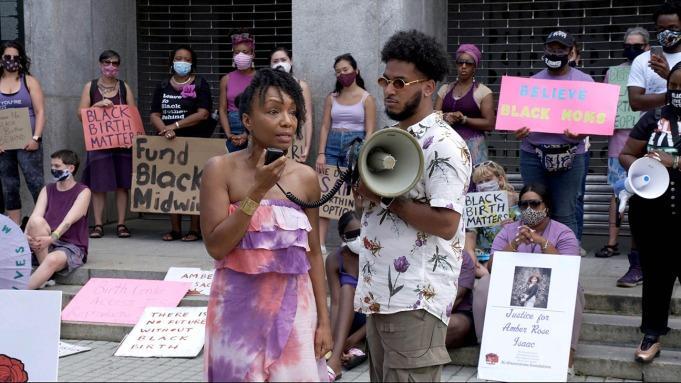Disney’s Onyx Collective and ABC News have jointly acquired the 2022 Sundance selection, Aftershock.
The feature won the U.S. Documentary Special Jury Award for Impact for Change at this year’s festival.
The project will stream from Onyx Collective on Hulu in the U.S., on Star+ in Latin America, and on Disney+ in all other territories. The documentary tackles the systemic oppression within the healthcare system as it relates to Black Women specifically Black women matriculating maternal health system.
The logline: An alarmingly disproportionate number of Black women are failed every year by the U.S. maternal health system. Shamony Gibson and Amber Rose Isaac were vibrant, excited mothers-to-be whose deaths due to childbirth complications were preventable. Now, their partners and families are determined to sound a rallying cry around this chilling yet largely ignored crisis.
“Aftershock is an essential and devastating documentary on the lived experience of pregnant Black women that immediately draws an emotional connection to the memories of the mothers who passed away,” said Kim Godwin, president of ABC News. “I’m incredibly proud to have ABC News Studios, together with Tara Duncan and Onyx Collective, shine a light on an epidemic affecting Black women in disproportionate numbers. The journey the family and friends take to fight a medical system that has failed them is a one many people should witness.”
The documentary follows the bereaved partners, Omari Maynard and Bruce McIntyre, “as they fight for justice and build communities of support, bonding especially with other surviving Black fathers.”
Directed by Paula Eiselt and Tonya Lewis Lee, the film is executive produced by Dawn Porter, Jenny Raskin, Geralyn White Dreyfous, Patty Quillin, Jennifer and Jonathan Allan Soros, Tegan Acton, Emma Pompetti, Janet Tittiger, Davis Guggenheim and Rahdi Taylor.
Articles have come out about Black women dying from childbirth complications and often the narrative has been that these women have died because they’re obese, they are not healthy, they don’t take care of themselves. You kind of feel like they’re in the world by themselves having these babies somehow on their own with no support from a partner or a family or a community,” Lewis Lee explained in an interview with Shadow and Act earlier this year. “The footage that both women created and the footage that we were able to create in partnership with them, I think really demonstrates that that narrative is not the truth that unfortunately, a lot of these women are very healthy. They’re very conscious of trying to take great care of their health. They do go to prenatal appointments. But it really is a systemic problem of how they are treated. And so that footage allowed us to show that they are human beings behind this data and the statistics that people talk about.”

